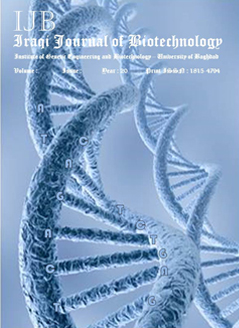Study of mutant frequency hypoxanthine guanine phosphoribosyl transferase (HPRT) gene in human lymphocyte for local samples of Al-Tuwaitha region-Iraq
Abstract
The aim of this study was determine the genetic damage in human blood lymphocytes for a number of 60 apparently healthy peoples were living Eshtar village and Al -Tameem region, near to the Iraqi Atomic Energy commission using Hypoxanthine guanine phosphoribosyl transferase (HPRT) mutation assay. Samples included 30 peoples from Eshtar village, aged (15-55 years) and 30 peoples from Al-Tameem region, aged (18 - 58 years), and 20 peoples aged (18 - 56 years) from other regions of Baghdad as a control group, was studied. The results of the average mutation frequency for HPRT (Mf-HPRT) gene showed a significant increase (p<0.05) in the males and females of human lymphocyte in this region as compared with the control group. In conclusion, the results indicated that there is a possibility of using the changes at the level of HPRT gene mutation as useful biomarkers for the detection of human exposure to radiological and chemical materials.


